Small Man Syndrome by A.J. Kirby
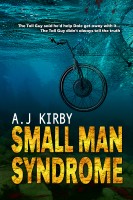
.
Wild Wolf Publishing 2015
My previous review of an AJ Kirby work HERE
When I real-time review this novel, my comments will be found in the thought stream below or by clicking the post’s title above.
18 thoughts on “Small Man Syndrome by A.J. Kirby”
XX & XXI
“; the cyclist, kind of yoga-ed into position on top of his bike so that he looked as streamlined as a stealth-bomber;”
“For there was no moon. None at all. It had turned its face away from what was going to come to pass.”
A fine second denouement, this time with more justified finality of motives. Almost unbearable, as one remembers a lifetime of caring for the monsters that are yours and defending them against the monsters that are not yours. The last judgement pans on, though, with the sacrifice already made, the outcome pondered. The secrets and lies of Gaia ever inscrutable, whether it be via a single elm tree as Focus or the whole of creation that includes us all including each of what I have long called our own Proustian selves within each of us through time – here, tall or small selves, faithful or treacherous ones, driven or driving.
A staggeringly thought-provoking ending, both frightening and fulfilling. No mean feat.
“It felt like my ears had become unblocked after a long time. There was a pronounced pop. I’m not sure if it was audible outside my head.”
end
“; the cyclist, kind of yoga-ed into position on top of his bike so that he looked as streamlined as a stealth-bomber;”
“For there was no moon. None at all. It had turned its face away from what was going to come to pass.”
A fine second denouement, this time with more justified finality of motives. Almost unbearable, as one remembers a lifetime of caring for the monsters that are yours and defending them against the monsters that are not yours. The last judgement pans on, though, with the sacrifice already made, the outcome pondered. The secrets and lies of Gaia ever inscrutable, whether it be via a single elm tree as Focus or the whole of creation that includes us all including each of what I have long called our own Proustian selves within each of us through time – here, tall or small selves, faithful or treacherous ones, driven or driving.
A staggeringly thought-provoking ending, both frightening and fulfilling. No mean feat.
“It felt like my ears had become unblocked after a long time. There was a pronounced pop. I’m not sure if it was audible outside my head.”
end
==========================
"My own real-time read of this review has just – belatedly – come to an end. I have absolutely loved your insightful commentary of the book and value your thoughts immensely. I’ve enjoyed your sound-bites (“up devastating shit creek with a literary paddle”) but also your forensic analysis: your archaeological exploration of the different levels of the novel – you’ve gone very deep – has provided me with some new perspectives on the major themes/ characters and also the wider context. I can’t thank you enough for this. I’ve enjoyed every minute of reading your review. I know the book is at times very unsettling, so thank you for keeping pushing through. Appreciated. AJK"
https://dflewisreviews.wordpress.com/2016/02/23/small-man-syndrome-a-j-kirby/#comment-6555

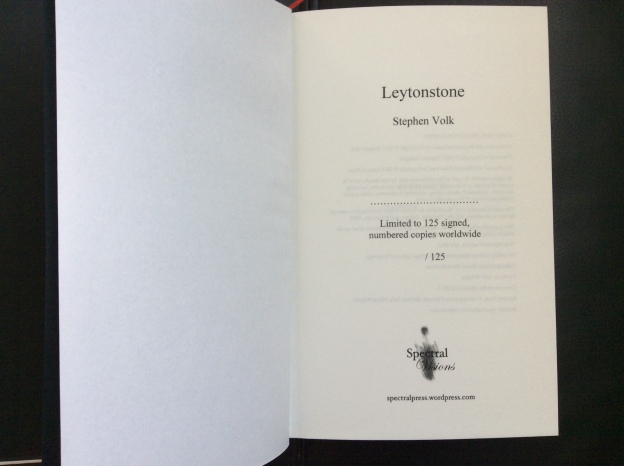
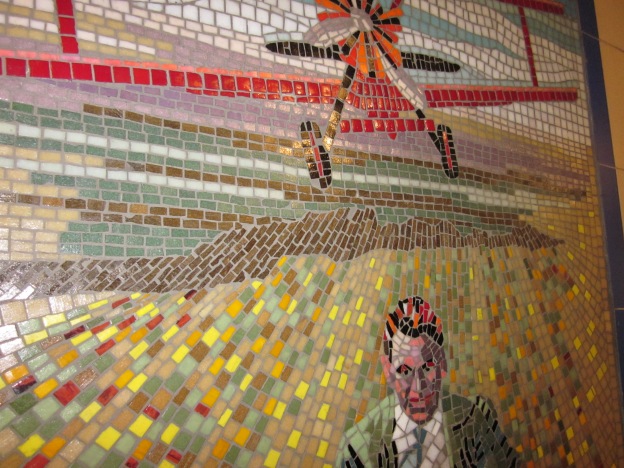
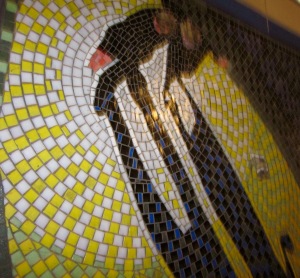


 Pages 19 – 29
Pages 19 – 29
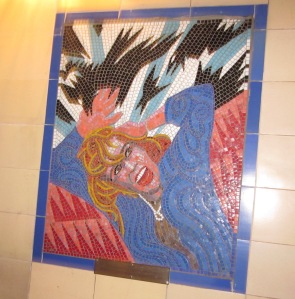 Pages 41 – 51
Pages 41 – 51
 Pages 62 – 70
Pages 62 – 70



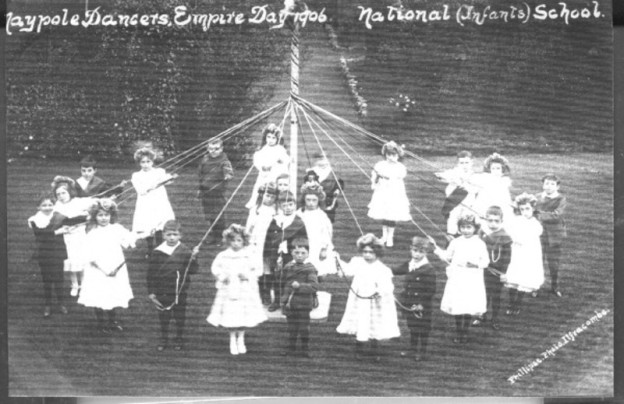



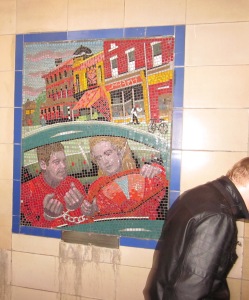 The future chases you like a swooping aircraft, I guess. All maps, bus routes, train timetables that young boy Fred memorised as a later triangulation of truth, where all outcomes point to the only inevitability that is you. Each throwaway object, like a piece of fruitcake, being a potential catalyst for all else. The closing scenes of this book feel heart-breakingly true about the harm people do in retrospect to those they love. How the ratio of what is acceptable and unacceptable changes. And the fame one receives amounts eventually to nought, as Fred is hugged, at the final ceremony, by his own cameo walk-on – rather than by he who had been really chased by that aircraft. (That last bit was me not the book, but it somehow flew at me out of the book.) This is time’s vast leap for man, but I don’t want to reveal more contents of these closing pages in case I spoil them. I merely ask a question. What was fabricated from scratch and what was already there, as viewed through this book’s haunting squint-hole upon truth and fiction, shutting and opening, as it does, like the aperture of a lens? Leminscate or Leytonstone.
The future chases you like a swooping aircraft, I guess. All maps, bus routes, train timetables that young boy Fred memorised as a later triangulation of truth, where all outcomes point to the only inevitability that is you. Each throwaway object, like a piece of fruitcake, being a potential catalyst for all else. The closing scenes of this book feel heart-breakingly true about the harm people do in retrospect to those they love. How the ratio of what is acceptable and unacceptable changes. And the fame one receives amounts eventually to nought, as Fred is hugged, at the final ceremony, by his own cameo walk-on – rather than by he who had been really chased by that aircraft. (That last bit was me not the book, but it somehow flew at me out of the book.) This is time’s vast leap for man, but I don’t want to reveal more contents of these closing pages in case I spoil them. I merely ask a question. What was fabricated from scratch and what was already there, as viewed through this book’s haunting squint-hole upon truth and fiction, shutting and opening, as it does, like the aperture of a lens? Leminscate or Leytonstone. .
.
“But Burgundy? There wasn’t anything here. It was mostly countryside. Woods. Fields. The occasional lake. It was just like Derbyshire, only nobody spoke English here. In fact, some downright refused to even though you were sure they could.”
I have long been a big fan of this author’s style and this opening chapter is not a disappointment. A definite tone of bitterness but a desire to do the right thing by his family, as he (Dale, the narrator) a short arse squirt, I infer, rather insultingly, and the one whom he calls the big monster (his wife Dee) and his kids the two little monsters, as they holiday in a rather neatly characterised unfriendliness of this part of France. Downtrodden by family and friends I sense a pent-upness in Dale that is involving me even though or because I yet fail to know whither it goes.
Drinking a lot of wine where its grape was originally grown not causing a hangover does, however, sound a bit far fetched!
“My head throbbed as though a comedy goon wearing a brown removalman’s overcoat was inside, struggling up a flight of stairs trying to pull a full-size piano behind him.”
Wow! The extrapolation from that comedy goon image, then the emerging post-binge state Dale’s big monster wife has left him In, as amazing as the character waking up in a Kafkaesque metamorphosis, a scene as if written by Roth or Updike. I don’t often say Wow! in my reviews, but the start of this novel surely deserves it, even as we learn about Dale’s own implied admission or fear, I guess, of a Tall Guy alter ego being not even a proper alter ego, as he meets the linguistic or semantic storms of his wife and the French men in the Boulangerie, and his later Spielbergian DUEL on the road…
Hope you continue to enjoy it
“It was as though I needed to see it through a screen, through some sort of lens, in order for it to become real.”
The word DUEL is now used for real in the text, I discover, as our gritty paranoid of a small man with the tall guy plotting inside him, does meet more than just a Kafkaesque metamorphosis as a traumatic change of his life’s destiny upon the passive aggressive road from there to now while returning in the car with the now squashed baguettes from the Boulangerie. I hesitate to break my vow against unspoiling any book with too little information, so I won’t even hesitate.
I do need however to express the power of the text’s description of what evolves as he returns to his monstrous wife and two sons (he has a thing about comebacks, you will find) – not that I believe they are monsters, and this is more his affectionate recognition of a deep-seated Sod’s Law that life often becomes, especially to men like Dale, whatever their efforts, whether encased in a vehicle or hit by it. The style is indeed powerful, often incantatory, with sharp turns of phrase and biting ricochets. This book, I repeat, is Updike or Roth – you know, rather than Horror genre. And that’s good. Up devastating shit creek with a literary paddle.
“They didn’t shout goodbye when they left, and the silence they left behind them was as heavy as an elephant.”
The ‘elephant in the room’ syndrome? This book so far is, for me, the most extreme, most frightening exemplification of such a syndrome, mixed with schism and paranoia, with the touching reaching out towards one’s increasingly inimical family to help expunge the deep angst of guilt, reaching out, too, towards another side of oneself, a side that has become almost detached, or actually detached and autonomous. A sense of the ‘bite-sized chunks’ methodical aspergic syndrome as an ingredient of that angst’s gestalt, a factor that is adding to my own angst produced by reading and reviewing this text in similar bite-sized chunks.
Separate from such considerations, this is an accessibly-expressed page-turning thriller with certain depths for the reader to explore or not to explore according to their temperament as a reader. Like Dale himself, what is real and what is not? What needs facing and what needs sinking out of sight, even if in some doubt about it being there at all? Evidence is not everything.
“I could barely make out the gloomy shape of the Focus let alone the farm-track,…”
I wonder if it is any accident that his car is called a Focus?
Juggling being in denial as well as shock, Dale appears to settle down beyond his Small Man Syndrome, Tall Guy notwithstanding, and his wife notices the change for the better… Leaves off his anti-sleepwalking cuffs… Dreams…
But a claustrophobic, even trapped, sense, beyond the Focus, of an inimical Gaia, for me represented by the surrounding bright animal eyes and an all-encompassing elm tree more widespread even than the Internet, electronic communications with which he and his “lying heart” grapple so as to escape what he feels is pursuing him. (Cf The complementary Lie Tree that I happened to have reviewed very recently here).
Selfish panic is so well described, I felt it as if it were my own.
“The shining Focus took shape and then the fields beyond it and then the farm track…”
“…but they knew, as though the knowledge had came to them through the soles of their boots. They just knew.”
And the local Gaia was implicated with the phenomenon of hangovers not happening if you drink wine from the grape grown inside it?
Meanwhile, thanks to his Tall Guy, who somehow hands him a towel in the shower, Dale recovers from the nightmares of the night and begins to placate his family with his new macho coolth.
Every man with a Small Man Syndrome should read this book (at least up to this point, as I can’t vouch for what happens afterwards as I haven’t read it yet) so as to gain the Tall Guy (Tall Gaia?) antidote. It’s so stylishly done. A potential literary landmark in male recouping.
“But for now, I’d taken one bite-sized chunk and I’d chewed it. And I’d swallowed it, like medicine.”
There is something disarming about a bunch of flowers, something bite-sized in glimpsing as one goes past but, in the context, so devastating. Devastating to the reader that is me. Not so much seemingly to Dale? That doubt about Dale makes it seem even more devastating as is the later post-dream discovery by the little monsters in the shed…
This is my Dreamcatcher review aptly dreamcatching Dale’s own dreamcatching, building gestalts, as I do, from, say, a constellation of moles on his wife’s neck after earlier drawing conclusions from a dream…
“The light showed me things: the Focus, so out of context when set against what was abroad behind it; a line of pilgrims haunting…”
“The flickering candlelight made focusing on them difficult…”
His previous coolth dissipates, I feel, as the Tall Guy sheds his Tall Gaia (my expression, not the book’s), sheds his shell of being an autonomous ally to an autonomous something else?
Very frightening.
“We’re looking for someone who’s maybe looking right back at you.”
“But eventually we got ourselves out the house and into the Focus. As I climbed inside, I forced myself to breathe through my mouth in order that I wasn’t assaulted by the cold-fish reek of my own guilt pouring out from the mats in the footwells and the handbrake and the air-con…”
A long chapter as a sort of central denouement, but with more knots left to tie – or untie. Dale’s monster is more than just his wife – nor is it his two kids with smartphones and hoodies. It is himself, small or tall.
It’s as if the book is stretching its limbs, feeling its own way, autonomously – even if the freehold author thinks he knows where his leasehold narrator Dale is taking it in small bites. I have a definite sense of unease, as dreams come to fruition as signposts, and the French town, where the family go for breakfast, is named after the erstwhile elm tree, a town with a 1980s feel, a near Marie Celeste with bulky screens instead of flat ones in the shops…
And the glimpse of the Tour de France on the restaurant’s b & w TV was somehow even more frightening for me than the earlier bunch of chrysanths.
“I mopped my brow and I thought about secrets and about lies.”
I sense that there is more being fabricated here than meets the reader’s or even the narrator’s eyes – as if we are watching a film-set where the central actor hasn’t yet been given the script so he is ad-libbing as events envelop around him or as he causes events to happen by misguided deliberation or catalytic power. And at what points are events and characters being fabricated up and down the pecking order of narration or along the spectrum of truth and lie?
“I told myself not to panic. Bite-sized chunks, I reminded myself. Don’t even think about the hows and whys of this until later. For now, just try and find a way back to yourself.”
“…it was the darkest place I’d ever been, out there on the landing.”
Some heart-wrenching scenes between man and wife, surrounded by oblique persecutory ‘objective correlatives’, like a car parked too close to another in an otherwise empty space, the delivered complete dead deer for barbecue, and the resultant rota for the little monsters between big monster and small monster…
If fiction can leave an offtaste in the mouth, this does. A taste that reflects on even you as a reader for somehow sharing these guilty undercurrents, nodding them through. Only special fiction can carry such strength to alter perceptions of truth and fiction. The warning is for us as much as anyone else in the book, I sense. Or am I too sensitive? Shouldn’t fiction be allowed to work like that?
With correlative bite-sized lessons or comebacks like this…
“We tried to get back on track by vaulting a barbed-wire fence. First I held it up for Jack to try to limbo under and then I tried to push it down so Dale Junior could jump over it.”
“But a deer, Dee, I said. What in hell are we going to do with a deer?”
One begins to realise how significantly a dead deer is not really a gift to relish… Nor are generations of hoarded newspapers. (Dale’s Dad, too, once hoarded newspapers on an industrial scale.) Here in Lormes, people seemed able to transcend the onward march of time via their photographs in such newspapers …
“The Tall Guy sighed. ‘This, Dale-o, is exactly why I was talking about bite-sized chunks. You see now; you’ve almost seen the whole of it, and yet you can’t wrap your mind around it all. There’s simply too much to grasp.'”
I know the feeling, Tall.
And now you seem no longer to be not only just an alter ego, Tall, not only just an autonomous mentor or spur, but also….
“And then, son, you’ll be lost. Up shit creek.”
“big, in-bred, lunken bastards”
…who left the dead French deer as a ‘gift’ for the Engkish monsters, and Dee and Dale almost comeback together in together freeing the area of the now fly-infested deer carcass, dragging it , towing it, almost like a Sisyphus myth, a tussle as a symbol of how I originally misunderstood the ‘monster’ tags as disarmingly endearing, now with a real monster like an amorphous growth between them, drawing them closer monstrously…
But there is somethings endemically unpleasant here between all parties in this book, something unredeemable, even between those who should love each other let alone something as connected to the monster as those lunken bastards, nothing redeemable moreover between the cycles of Gaia and humanity. A once sweet deer become a monster to join with all the other monsters, in fact to join them together in new cycles.
“And suddenly I felt like we hadn’t buried the body deep enough.”
As Dale is exiled by Dee to the hotel whereto he walks through the forest, there are passages here about Gaia’s ‘tinge of death’ and its cycles that are unmissable and are alone worth the admission price of this book. (NB: ‘Gaia’ is my word as the book itself, so far, has not used it.)
A ‘mass-murder’ of crows, too, and cows. A scene that reminds me of Hitchcock’s birds, and it is a strange helpful coincidence that I have been concurrently reviewing (here) a young Hitchcock in ‘Leytonstone’, strange for more than one reason of complementary mutuality, and I found myself a day or so ago using a short passage from my Kirby review for the Volk one – or vice versa (I can’t remember).
The Kirby is, meanwhile, uniquely, naggingly striking in its treatment of Small Man Dale’s dissatisfaction with the past and his relationship with his own Tall Guy persona now loose amid sturm und drang, drang und duel…
“And despite all of the changes I made, I was still me, and I couldn’t get away from myself.”
“‘There ain’t no such thing as poetic justice, Dale-o,’ he said. ‘Life works according to no laws like that. There’s only shit, and shit-happens. Now, get up offof that motherfucking road before shit happens to you.'”
“Idly, I wondered whether the hotel had Wi-fi, and whether it had a computer I could use.”
Wi-Fi seems a rarefied form of Gaia… The broadcast news, the explicitly mentioned migrants in Calais … just other symptoms of that now broken Gaia, a more general symptom compared to the particularised one of Dale’s own real and spiritual besiegement by the cycles of himself or of others? By his family – or by his alter ego whom he sees as part of the besieging and baying shadows of either truth or mind’s madness? His own besiegement of his dearly beloved but monstrous family, or they of him? These now Hitchcockian straw or real dogs like birds that clutter the wire-less avenues of his soul as the book’s leitmotifs themselves crowd in (my expressions, not the text’s).
“And you might call me paranoid, but I had begun to believe there was no such thing as coincidence.”
This blend of the horror genre or Gothic (“sleep began to wrap her slippery tentacles around me again”) with the Literary and psychological is so adroitly handled, I feel that I even forget that I am reading a book.
“I remembered how all stories like this ended: the hunter and the prey always met, and they always played it out according to Darwin’s rules.”